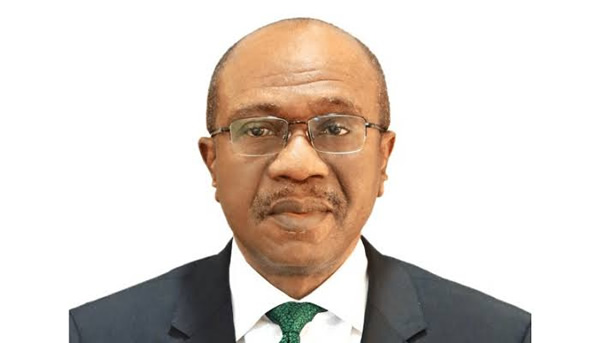
CBN Sets Six-Month Deadline for Successor Bank Chiefs
- Business
- 18.09.2025
- No Comment
- 108
CBN Sets Six-Month Deadline for Successor Bank Chiefs
Domestic Systemically Important Banks (DSIBs) to obtain
regulatory approval for appointing successor Managing Directors (MD/CEOs)
at least six months before the incumbent exits office.
This policy shift is designed to strengthen corporate governance, reduce
uncertainty, and preserve confidence in Nigeria’s financial system.

Dr. Rita Sike, and published on the CBN’s website, the apex bank
also directed that such appointments must be made public no later than
Related News: With 6 Months to Go, Only Six Listed Banks Have Met CBN Recapitalisation Target
Recapitalisation: Five Banks Hit CBN Target Ahead of Deadline
Central Bank Of Nigeria (CBN) launches Nigeria payments system vision 2028
CBN Orders Geo-Tagging of All PoS Terminals in Nigeria
GTCO Injects N365.9bn Into GTBank to Meet CBN Capital Requirement
three months before the outgoing CEO officially vacates office.
This ensures that leadership transitions at Nigeria’s most critical financial
institutions are properly planned and executed.
“Consequently, and in line with good corporate governance practice, each DSIB
is hereby required to: Ensure it obtains regulatory approval for the appointment
of a successor Managing Director not later than six months to the expiration of
the tenor of the incumbent MD/CEO. Publicly announce the appointment of the
successor MD/CEO not later than three months to the planned exit of the incumbent
MD/CEO. Please ensure strict compliance.”
anchored in Section 2.14 of the Corporate Governance Guidelines (2023),
which requires the boards of commercial, merchant, non-interest, and payment service
banks to maintain robust succession plans for their senior executives.

The guidelines aim to ensure orderly transitions at the top, minimising risks
linked to sudden leadership vacuums. According to the CBN, the new rule seeks to:
- Minimise disruptions at the top management level.
- Enable new appointees to prepare adequately for their roles.
- Mitigate risks associated with abrupt leadership changes.
role in the financial system because of their size, complexity, and interconnectedness.
A leadership shock at such banks could ripple through Nigeria’s financial markets,
threatening depositors, shareholders, and the stability of other institutions and
the overall economy.

By tightening succession rules, the CBN aims to safeguard against leadership
instability in these systemically important institutions, ensuring smoother
management transitions and stronger resilience in times of uncertainty.
international best practices, where regulators emphasise succession planning
as a critical element of risk management in the banking industry.
Globally, many central banks and financial supervisory authorities require banks
to maintain well-documented succession frameworks for their chief executives and
other top management roles. This guarantees leadership continuity, which is vital
for the financial system’s stability.

Nigeria’s banking sector:
- Access Holdings Plc recently confirmed
Innocent Ike as its substantive Group Managing Director after receiving
CBN’s regulatory approval. His appointment followed the exit of Roosevelt Ogbonna. - Long-serving executive Seyi Kumapayi also stepped down, reflecting
the pace of boardroom transitions across the sector. - The return of Aigboje Aig-Imoukhuede as chairman of Access Holdings,
following the tragic death of former CEO Herbert Wigwe in 2024, underscored
the need for deliberate and structured succession plans.
over leadership changes. Banks must begin succession planning earlier in a CEO’s
tenure, secure CBN approval six months ahead of the incumbent’s exit, and announce
successors publicly three months before the handover date.

This timeline leaves little room for last-minute decisions, ensuring stakeholders —
including employees, customers, investors, and regulators — have clarity about
leadership continuity. For banks, the new rule may mean building deeper pipelines
of executive talent, grooming internal candidates well in advance, and balancing
the need for fresh perspectives with continuity in strategic direction.
Analysts say the move is intended to send a signal of stability in a sector often
rattled by external shocks such as currency volatility, inflation, and rising
interest rates. The new rules could also reduce rumours and speculation about
leadership changes, which sometimes disrupt market confidence and trigger investor
anxiety.

safeguard. A senior executive at one of Nigeria’s top-tier banks noted that while
the timelines may appear tight, they would compel boards to strengthen their
talent management frameworks.
However, some experts caution that banks may face challenges if unexpected exits
occur, such as sudden resignations or the death of a serving CEO. In such cases,
they argue, regulators must apply flexibility while still insisting on robust
succession frameworks.
Governor Olayemi Cardoso, who has prioritised strengthening
governance, transparency, and resilience in the financial sector.
Over the past two years, the bank has introduced a series of policies ranging
from foreign exchange reforms to bank recapitalisation requirements, all aimed
at building a more stable and globally competitive banking industry.
Succession planning now joins that list as a critical plank of reform, reinforcing
the message that Nigeria’s financial institutions must be run with the highest
governance standards.
CBN 2025 Policy & Banking FAQs
- CBN retained the Monetary Policy Rate (MPR) at 27.5% for 2025.
- Maintains Ways and Means Advances limit at 5% of previous year’s actual revenue.
- Focus on orthodox monetary policy tools and reduced quasi-fiscal interventions.
- Implementation of the new Nigerian FX Code for transparent transactions.
- Waiver of 2025 non-refundable license renewal fees for Bureau De Change operators.





